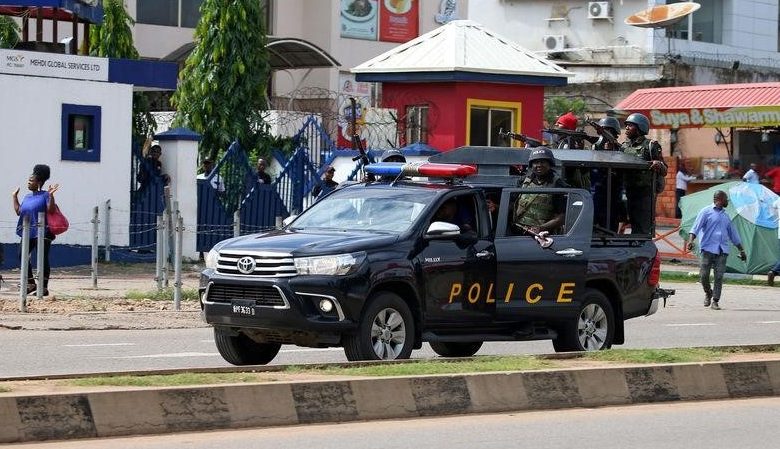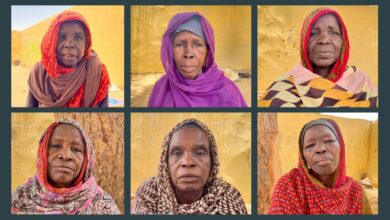Nigerians Call For More Secure Roads Once Interstate Movement Resumes

The National coordinator of the Presidential Task Force on COVID-19, Dr Sani Aliyu, said three weeks ago that the ban on inter-state travelling might be lifted shortly after domestic flights resume. Also, at a media briefing by the task force on Monday, June 1, the Minister of Aviation, Mr Hadi Sirika, asked stakeholders in the sector to start getting ready for flight resumption on June 21.
Aliyu later clarified that although the aviation sector would be preparing to resume operations, the actual resumption date could be much laterㅡ“June 26, 28 or even July 1”.
“It depends on whether or not they are prepared. So we are giving them a time frame of three weeks to start preparing for domestic flights,” he said.
The PTF coordinator also said arrangements regarding interstate travel would have to be reviewed once domestic flights resumed “because you cannot have a ban on interstate travel and you have people flying from one state to another”.
On Thursday, however, the Director-General of Nigerian Civil Aviation Authority (NCAA), Musa Nuhu, said June 21 was no longer feasible as there was no confirmation yet that operations could resume “in a safe, secure, organised and efficient manner”.
Are the roads safe for movements?
Statistics from the Armed Conflict Location and Event Data Project, reputed to be the most widely used real-time data source on political violence, indicate that the rate of abductions and forced disappearances increased significantly in Nigeria during the lockdown over COVID-19.
In April, 17 cases of abduction were reported while in May, 20 cases were recorded. Meanwhile, there were 11, eight, and six incidents respectively in January, February and March. Also, the average number of abduction per month in 2019 was six, although April and May of the year had three and four cases respectively.
Most of the incidents in the last few months, however, took place in communities, homes, and offices, not on the road. Some exceptions include the abduction on May 21 of a naval officer in Ondo State on his way to Abuja and the abduction on May 29 of four travellers on the Lagos-Asaba Road in Delta by a militia group.
Some Nigerians feared that the lifting of the ban on interstate travel might trigger a shift in the focus of criminals to the roads. But that is not all Nigerians worry about.
Oghenekevwe Oghenechovwen, an environmental scientist based in Warri, told HumAngle he looked forward to the relaxation because he needed to travel to a number of places after the lockdown.
“Honestly, the security concern I have is possible harassment from every state armed entity, including the police and its subunits and the National Drug Law Enforcement Agency,” he said.
He believes there is a chance abuse from security agents will worsen. “Those guys have been out of significant cash flow and contact with a maximum number of commuters for a while. In Nigeria, I think there’s a real possibility that harassment could get worse upon opening the roads.”
The reduction in abduction on roads could be as a result of the heavy deployment of security agents to enforce the travel ban. Recent travellers confirmed to HumAngle that more security checkpoints were mounted in a lot of places.
“The number of police on the road has drastically increased,” said Tajudeen Abubakar who recently travelled between Ibadan, Oyo State, and Funtua, Katsina State.
He said that he also saw a lot more soldiers, operatives of the Nigeria Security and Civil Defence Corps, and civilian vigilante groups, who all extorted money from the driver.
‘We need more policemen on the roads’
Ben Okezie, a security analyst and Chief Executive Officer of BRANE Security, said that the state of security on the roads might worsen with more movement of people as the lockdown had incapacitated some criminals.
He urged the government to ensure there were enough policemen and security vehicles on the roads when the decision to reopen would be made, adding: ““These are the only measures to ameliorate what might eventually happen.”
“Again, you have got to also understand that there are so many students who are not in school or are unemployed and so many workers who have been laid off. It does not seem that the government is doing anything or has any major plans to open up the economic space for all these people to be engaged.
“You can see that already we are having more social problems in terms of rape and other vices,” Okezie said.
He said as much as the security agencies needed to sit up and be well-prepared, the government should also motivate the personnel properly and provide them the resources to work.
“That is why you see the police going around to beg governors and ministers and private institutions for vehicles. The government is absolving itself from providing all these things for the police,” he said.
“When we talk of the budget vote for the police, we find out that the percentage released to them is not enough. You can see the predicament that the government has put many of these institutions into and these issues need to be addressed,” the security expert said.
He further urged the government to invest more in the training of security agents and to consider improving the policing structure, especially by giving a green light for state policing.
Police: No comments yet
Police Public Relations Officer, Frank Mba, meanwhile said he would rather not speak on what steps the police would do to secure lives and properties after the travel ban was lifted.
He, however, promised to discuss the plan once the government made a definite announcement, pointing out that doing so earlier might give the impression that a further relaxation of movements was being considered.
Support Our Journalism
There are millions of ordinary people affected by conflict in Africa whose stories are missing in the mainstream media. HumAngle is determined to tell those challenging and under-reported stories, hoping that the people impacted by these conflicts will find the safety and security they deserve.
To ensure that we continue to provide public service coverage, we have a small favour to ask you. We want you to be part of our journalistic endeavour by contributing a token to us.
Your donation will further promote a robust, free, and independent media.
Donate Here




